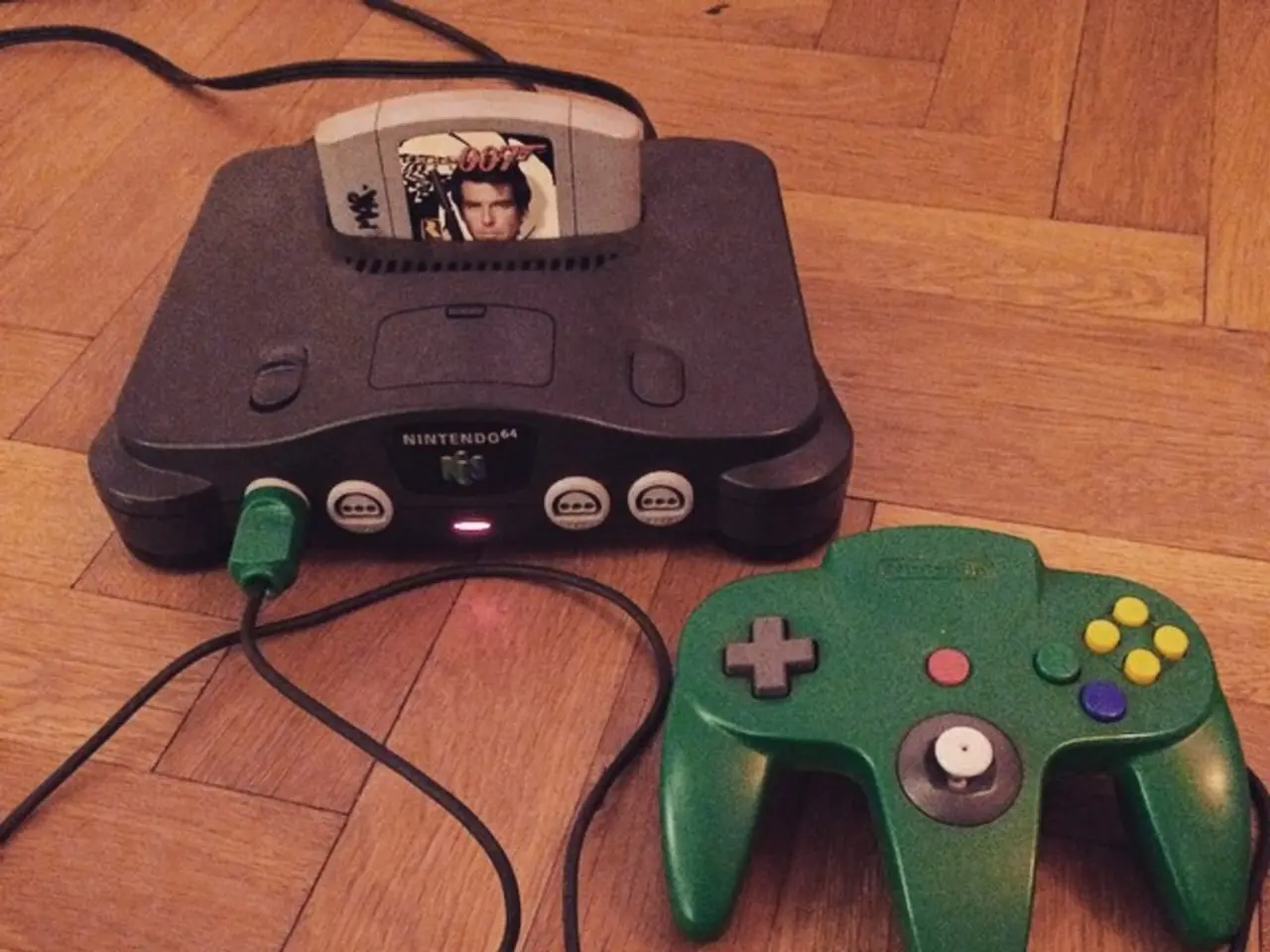A timekeeping mechanism operating for eight consecutive days.
🕰️ The Lowdown on 8-Day Clocks 🕰️
Want to know more about those beautiful, antique clocks you've got at home that only need a weekly wind? Look no further! Let's dive into the world of 8-day clocks.
First, let's clarify that 8-day clocks are mechanical marvels designed to provide approximately a week's worth of timekeeping before they demand a refueling. While you might think these clocks are a breeze to maintain, you'd be quite wrong. They require regular care to keep ticking and topping.
The Scoop on Clock Winding 🔧
If you don't wind your 8-day clock on time, it'll eventually shut down because the mainspring or weight can no longer supply the necessary power for its intricate workings. You might think "Gee, an 8-day clock with a one-week life? Seems odd," but there's more to it than meets the eye!
Mechanical clocks come in a variety of flavors, each with unique lifespans. For instance, a 30-hour clock, or a 1-day clock, is common, as are ogee weight-driven and alarm clocks that boast a 1-day run time. On the other hand, Chinese and Korean clocks can run for up to a month!
Don't forget about other clock species like 14-day, 15-day, 60-day, and 400-day (anniversary!) clocks. Each clock value indicates how long it'll keep on ticking before it needs another energy infusion.
Longevity: A Clock's Best Friend 🕰️⏳
Failing to wind your clock at the designated time can mean trouble. A stopped clock might indicate three possible problems: the clock is dirty, the movement is worn out, or both. In such cases, oiling the components won't help; instead, it could even speed up wear and tear on pivots and bushings.
Professional clock menders define "servicing" as a lengthy process: they carefully dismantle the movement, clean all components, address any worn-out parts, reassemble, re-oil, and thoroughly test the clock to ensure it operates smoothly. Clock servicing can be pricey, but it's worth it to preserve cherished family heirlooms. In some instances, the cost of caring for the clock may surpass its market value, but that's a debate for another time.
📝 Enrichment!
Knowledge of mechanical wear and tear, friction, and power supply are essential to understanding antique clock performance. Friction within the gear train and escapement mechanism slows down or disrupts movement, while greasing the components helps prevent excessive wear and friction, which is key for consistent accuracy and run time. Environmental factors like temperature and magnetic fields can also indirectly impact clock performance.
Winding replenishes the stored energy in the mainspring or raises weights, which in turn powers the clock's gear train and hands. Proper and timely winding ensures consistent power supply and--in turn--accurate timekeeping. Insufficient winding can cause the clock to lose accuracy, lose time, or stop.
🔍 Under the Microscope: My Clock Collection 🔍
Speaking of my clock stash, around 30 of my 80+ clocks are in operation. Among these, I have five 1-day ogee clocks, three 14-day models, and, yup, you guessed it—most are 8-day clocks. Many antique and vintage clocks found in shops and online are also week-runners.
👀 Speed Variations: Clock Time-Travelers 👀
So, why might your 8-day clock lose time as it nears the end of its run? Well, it's a traditional characteristic of antique and vintage clocks, in which they lose about a minute or so towards the end of the week.
In a spring-driven mechanism, power comes from a spring that stores energy when wound with a key. As the week progresses, the spring unwinds and releases less energy, resulting in a slight slowdown of the clock's movement.
This is also why some antique clocks have a stop work or Geneva stop. These mechanisms use only the middle portion of a long and powerful spring to provide a consistent release of energy, improving the clock's timekeeping.
Man's Best Friend: A Winding Schedule 📅
A well-functioning 8-day clock needs winding once a week, and setting aside a regular winding time helps keep your clock in tip-top shape. I like to make Sundays my winding heaven and, if needed, make small adjustments to correct any gain or loss of time.
For weight-driven clocks, the weight provides constant force throughout the clock's operation, making these clocks inherently more accurate than spring-driven counterparts and requiring only occasional adjustment.
If you want to keep your 8-day clock ticking as it should, don't hesitate to set a schedule, treat it well, and don't forget to visit our blog for all things antique clock related!
Get notified when new antique clock content is posted! 🔔
- Facebook 📱 https://fb.me/antiquetims
- LinkedIn 🌐 https://linkedin.com/company/antiquetims
- Twitter 🐦 https://twitter.com/AntiqueTimeSM
- Pinterest 📌 https://pinterest.com/pin/94088505505648957/
- Reddit 🌐 https://reddit.com/user/AntiqueTimeSM
- WhatsApp 📲 WhatsApp business API @ Antique Time Co. LLC
- X 🌐 Sign up for our newsletter @ Antique Time Co. LLC
More Nifty Stuff 📚 🔍
- Three 30-hour clocks for your collection
- Clock key sizes: Do you have the right one?
- My antique clock stopped: What do I do?
- To preserve the proper functioning of your vintage clocks, regular maintenance like clock servicing is crucial to clean, repair, or replace worn-out parts, re-oil, and thoroughly test the clock.
- Variety in clock mechanisms includes 8-day clocks, but you can also find 30-hour (1-day), ogee weight-driven, alarm, Chinese, Korean, 14-day, 15-day, 60-day, and 400-day (anniversary) clocks, each with a specific life span.
- While gadgets like smartphones and other technology may seem more appealing, vintage mechanical clocks like 8-day clocks require minimal power yet offer a distinct charm and intricate mechanical beauty.




